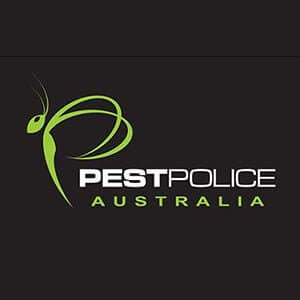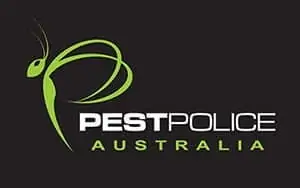There are many ways to exterminate and keep termites at bay and one of the most effective methods available on the market comes in the form of chemicals. Choosing the right one isn’t as simple as grabbing the glossiest pesticide spray can off the shelves at the grocery, though.
The truth is that lots of changes have happened in termite treatment chemicals. It goes without saying that you’ll want to carefully decide on your options before you get any form of treatment done on your property.
Classification of Termite Treatment Chemicals
For the most part, chemicals used for termite treatments are split between these two types of termiticides:
Non-repellent
In terms of their effectiveness in killing termites, these are considered to be among the best choices. The latest generation of these termiticides can’t be detected by white ants and that makes them really good at what they do.
Repellent
Termite treatment doesn’t get as basic as using this type of chemical. Their continued use in the market indicates that they’re strong and just as effective as their non-repellent counterpart.
A third kind of termiticide that is becoming popular these days are a combination of these two basic classifications. By far, it has been considered as the best chemical treatment option available in the market. In fact, they’ve been routinely used by professional pest control experts to destroy termite nests that can’t be readily accessed inside buildings. Their effect is so strong that an application will kill an entire colony without leaving a trace.
Finding a Termiticide That Works for You
As you select the kind of chemical treatment to use against these wood-eating pests, you’ll certainly be confused by their sheer number. Yes, choosing the best termite-killing chemicals is no walk in the park. To make the decision-making process easier, you’ll have to scrutinise each available termiticide solution and pick one that suits your situation.
It’s worth noting, however, that today’s termites have grown stronger and many can withstand chemicals that have long been available to public consumers. In this case, using a stronger, more potent chemical is needed to destroy these invaders but that’s easier said than done. The fact is that there are strict restrictions imposed on the use of insecticides these days because the indiscriminate and unplanned use of these substances can harm people as well as affect the immediate surroundings.
How do you pick the right chemical termite treatment then? You begin by figuring out what matters to you.
Properly Evaluating Chemical Termite Treatments
As you begin searching for a safe and effective termiticide, think about the cost, longevity, and toxicity of the insecticide you’re selecting. Any oversight in this regard will get you a termite solution that may be less effective and yet be harmful to you, your family, and pets. Thankfully, there are a lot of options in the market and you can find one that works without being hazardous.
Speaking of safety, it’s noteworthy how Australia imposes some of the strictest regulations on the pest control industry and you can be sure that the commercially available chemicals for termite treatment have gone through proper evaluation. In other words, they’ve been approved by the national and state authorities before pest exterminators use them. This is the reason why you should only use termiticides approved by the government since you can be sure that they meet the set regulations and, therefore, are safe for both people and the environment.
Safety Precautions When Exterminating Termites
Needless to say, you have to take the necessary precautions whenever you’re handling chemicals, including termiticides. Even when faced with severe termite infestation, this is no reason to endanger yourself needlessly by applying such potentially harmful substances indiscriminately.
As you’re about to get your place treated with chemicals that eliminate and drive out white ants, make sure to keep the following in mind:
Don’t touch soil that has been treated.
- Ensure the premises are properly ventilated after the chemical treatment.
- Keep pets and kids away from the property that is being treated.
- Check if you, family members, tenants, or pets are allergic to the termiticides used.
- Communicate with the professional termite technician regarding other safety measures to observe.
Trusted Chemicals for Termite Protection
Although many chemicals are registered for use in termite control, many outdated products may still be hanging around and waiting to cause health and environmental problems. This is why the likes of Termidor (BASF) and Biflex (FMC) are popularly used by termite exterminators as they’ve proven to be safe alternatives.
Here are the active ingredients in these two termiticides that make them effective against white ants:
Fipronil (Termidor)
Among the most effective ingredients on the pest control market is also one of its newest, Fipronil. It’s a dual-action insecticide and insects can be affected by the chemical either by coming into contact with it or ingesting it. It works by disrupting the normal function of the central nervous system in insects i.e. termites, ants, and cockroaches. Fipronil disrupts an insect’s function by overstimulating its nerves, leaving it unable to perform basic functions.
What makes this chemical really effective in eradicating termites is that it’s non-repellent. That means insects will walk through treated areas and be oblivious to fipronil. With this active ingredient being a slow-acting poison, it allows the affected termites to go back to their colony and spread fipronil to the rest of the nest. Eventually the internal domino effect will get the entire colony killed.
Bifenthrin (Biflex)
For termite extermination, property owners will opt for products made by reputable companies that have invested enough resources for proper research. Among those chemicals that came off such research is bifenthrin, the active ingredient in the Biflex termiticide.
This chemical is based on the natural insecticide of pyrethrum, a small, white daisy. This nature-inspired chemical is hardly soluble in soil and this property gives it a strong, residual effect. In other words, soil treated with bifenthrin can continue killing and keeping termites off your property for a long time.
Termite Control Chemicals Protect You
When it comes to termite protection, prevention is always the better option. Before white ants come eating through your wooden front door, set up chemical barriers that will keep them at bay.
If they ever breach your impregnable bungalow, you can always turn to us. We’ll schedule a standard termite inspection then recommend the safest and most effective chemical treatments to use or if you prefer, we can also do a full termite treatment in Melbourne so these wood-eating menaces won’t ever feel welcome in your place.

